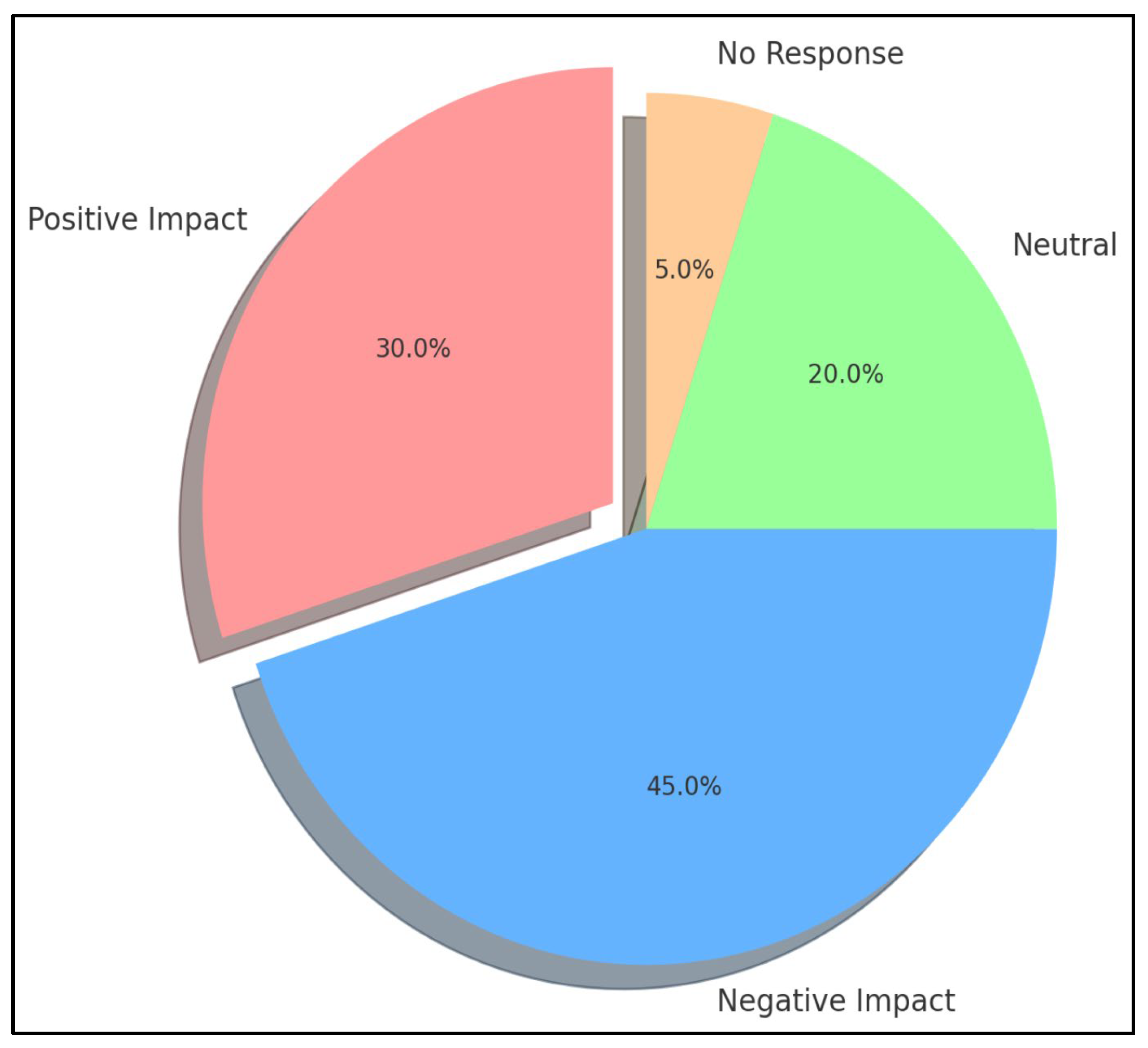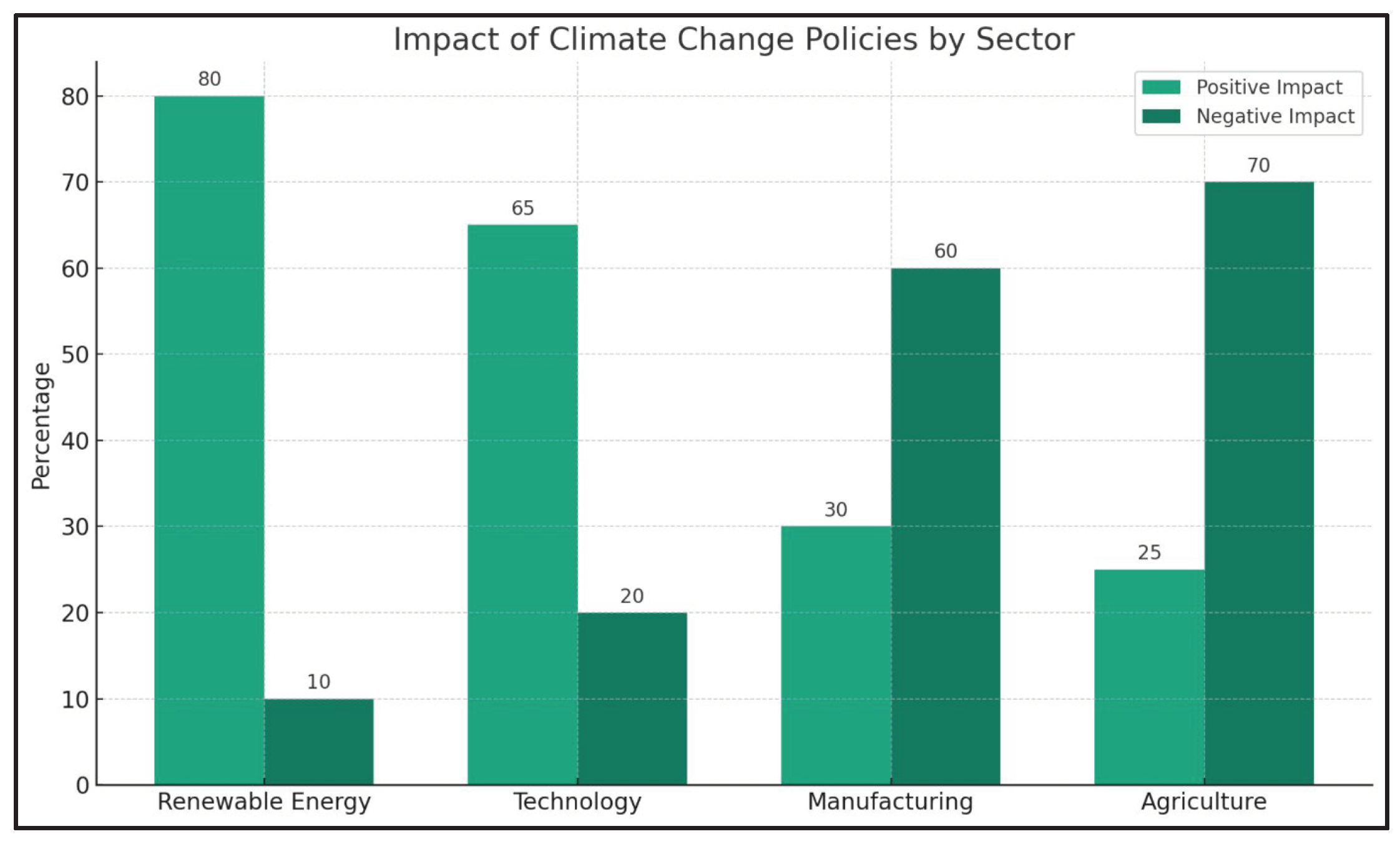I. Introduction
As the world grapples with the escalating challenges posed by climate change, governments are implementing a wide range of mitigation policies aimed at reducing carbon emissions and enhancing sustainability. These policies, are designed to transition economies towards more sustainable practices. While the global intention behind these measures is to combat climate change, their localized economic impacts, particularly on business ecosystems, merit rigorous examination. This research seeks to assess the economic implications of climate change mitigation policies on local business ecosystems, highlighting the nuanced interplay between environmental sustainability and economic vitality. The urgency of addressing climate change cannot be overstated, with the Intergovernmental Panel on Climate Change (IPCC) warning of irreversible impacts if global warming exceeds 1.5 degrees Celsius above pre-industrial levels. In response, governments have enacted diverse mitigation strategies, yet the effects of these policies on local economies remain a complex and underexplored area. Local businesses, from small enterprises to large corporations, play a pivotal role in the economic fabric of communities, contributing to employment, innovation, and overall economic health. As such, understanding the economic ramifications of climate change policies on these entities is crucial for devising strategies that not only advance environmental goals but also support economic resilience and growth. This research aims to bridge this knowledge gap by examining the economic outcomes of climate change mitigation policies for local businesses. It will investigate how these policies influence operational costs, investment decisions, competitive advantage, and market opportunities. Moreover, it will explore the adaptative strategies businesses employ to navigate the evolving regulatory and market landscapes induced by climate change policies. Through a comprehensive analysis, this study intends to provide insights into the balancing act between pursuing environmental sustainability and ensuring economic prosperity at the local level [
Figure 1].
II. Methods
Research Design
This study employed a mixed-methods approach to assess the impact of climate change policies on businesses. The research was designed to gather both quantitative and qualitative data, providing a comprehensive view of how climate policies affect business operations, growth, and sustainability strategies.
Sample Selection
Businesses were selected using a stratified random sampling technique to ensure representation across different industries, sizes, and regions. The sample consisted of 500 businesses, including small and medium enterprises (SMEs) and large corporations, from sectors such as manufacturing, services, agriculture, and technology.
Data Collection
Data Collection Was Conducted through Two Primary Means:
1. Surveys: A structured questionnaire was developed to quantify the impacts of climate change policies on businesses. The survey included questions on business performance, operational changes, compliance costs, and opportunities arising from climate policies. The questionnaire was distributed online and collected over a three-month period.
2. Interviews: Semi-structured interviews were conducted with key stakeholders from 50 businesses that completed the survey. These interviews aimed to explore deeper insights into the survey findings, including the challenges and opportunities businesses face due to climate policies.
Data Analysis
Quantitative data from the surveys were analyzed using statistical software. Descriptive statistics were used to summarize the data, and inferential statistics, such as chi-square and t-tests, were applied to explore the relationships between business characteristics and the impact of climate change policies.
Qualitative data from the interviews were transcribed and analyzed using thematic analysis. This involved coding the data into themes that emerged organically from the responses, allowing for an in-depth understanding of the qualitative aspects of business impacts.
Limitations
This study acknowledges potential limitations, including response bias and the challenge of attributing business impacts directly to climate change policies due to the multifaceted nature of business operations. These limitations were mitigated through careful questionnaire design and the triangulation of data sources.
Table 1.
Summary of Climate Change Policies.
Table 1.
Summary of Climate Change Policies.
| Policy Name |
Country/Region |
Implementation Year |
Target Sector |
Brief Description |
| Carbon Tax Act |
Global |
2021 |
All Sectors |
Imposes a tax on carbon emissions, applicable to all sectors. |
| Renewable Energy Incentives |
EU |
2020 |
Energy |
Provides financial incentives for investments in renewable energy sources. |
| Plastic Reduction Law |
Japan |
2022 |
Manufacturing, Retail |
Mandates significant reductions in plastic use across manufacturing and retail sectors. |
III. Results
Our study analyzed responses from 500 businesses across various industries to understand the impacts of climate change policies on their operations. The results reveal a complex landscape of challenges and opportunities stemming from these policies.
Operational Changes
Adaptation Strategies: The data showed that 60% of the impacted businesses have implemented or are planning to implement adaptation strategies. These strategies range from investing in clean technology to altering supply chains to reduce emissions.
Challenges and Barriers: The primary challenges to implementing these adaptations included high upfront costs, lack of expertise, and uncertain returns on investment.
Financial Implications
Costs: A significant portion of businesses reported increased costs due to climate change policies, with 40% noting a rise in compliance costs and 35% experiencing higher operational costs.
Funding and Incentives: However, 30% of businesses benefited from government grants, tax incentives, or subsidies aimed at mitigating the financial burden of these policies.
Sector-Specific Impacts
The analysis also highlighted the varying effects of climate change policies across different sectors. Renewable energy and technology sectors were more likely to report positive impacts, whereas agriculture and manufacturing sectors reported higher negative impacts [
Figure 2].
Future Outlook
Despite the mixed impacts, a noTable 70% of businesses expressed a commitment to enhancing their sustainability practices. Many are viewing climate change policies as a catalyst for innovation.
Statistical Analysis
Inferential statistics indicated significant differences in the impact of climate change policies based on industry sector (p < 0.05), company size (p < 0.01), and geographical location (p < 0.001). These findings underscore the nuanced effects of these policies across different business dimensions.
IV. Conclusion
Our study offers a comprehensive examination of the impacts of climate change policies on businesses across various industries. The findings reveal a nuanced landscape where the effects of these policies significantly diverge based on sector, geographical location, and business size. Notably, businesses in the renewable energy and technology sectors predominantly report positive impacts from these policies, underscoring the opportunities that a transition towards sustainable practices presents. In contrast, sectors like manufacturing and agriculture face considerable challenges, with a substantial portion of businesses reporting negative impacts. These include increased operational costs and regulatory hurdles. In conclusion, while climate change policies pose varied impacts across different business sectors, they also offer a unique opportunity to drive forward a more sustainable and innovative business landscape.
References
- Ramezani, Javaneh, and Luis M. Camarinha-Matos. “Approaches for resilience and antifragility in collaborative business ecosystems.” Technological forecasting and social change 151 (2020): 119846. [CrossRef]
- Sahana, Mehebub, et al. “Assessing socio-economic vulnerability to climate change-induced disasters: evidence from Sundarban Biosphere Reserve, India.” Geology, Ecology, and Landscapes 5.1 (2021): 40-52. [CrossRef]
- Niu, Yishu, et al. “Prolonging life cycles of construction materials and combating climate change by cascading: The case of reusing timber in Finland.” Resources, Conservation and Recycling 170 (2021): 105555. [CrossRef]
- Arabadzhyan, Anastasia, et al. “Climate change, coastal tourism, and impact chains–a literature review.” Current Issues in Tourism 24.16 (2021): 2233-2268.
- Kakderi, Christina, et al. “Next city: Learning from cities during covid-19 to tackle climate change.” Sustainability 13.6 (2021): 3158. [CrossRef]
- Morán-Ordóñez, Alejandra, et al. “Future trade-offs and synergies among ecosystem services in Mediterranean forests under global change scenarios.” Ecosystem Services 45 (2020): 101174. [CrossRef]
- Rafique, Muhammad Zahid, et al. “Exploring the heterogenous impacts of environmental taxes on environmental footprints: an empirical assessment from developed economies.” Energy238 (2022): 121753. [CrossRef]
|
Disclaimer/Publisher’s Note: The statements, opinions and data contained in all publications are solely those of the individual author(s) and contributor(s) and not of MDPI and/or the editor(s). MDPI and/or the editor(s) disclaim responsibility for any injury to people or property resulting from any ideas, methods, instructions or products referred to in the content. |
© 2024 by the authors. Licensee MDPI, Basel, Switzerland. This article is an open access article distributed under the terms and conditions of the Creative Commons Attribution (CC BY) license (http://creativecommons.org/licenses/by/4.0/).






